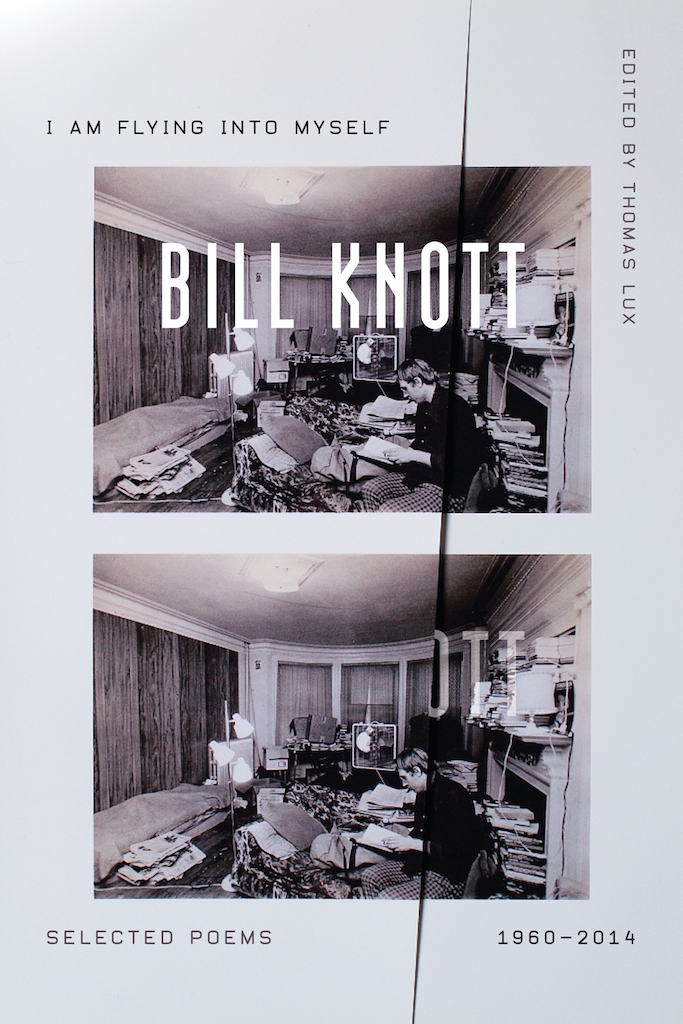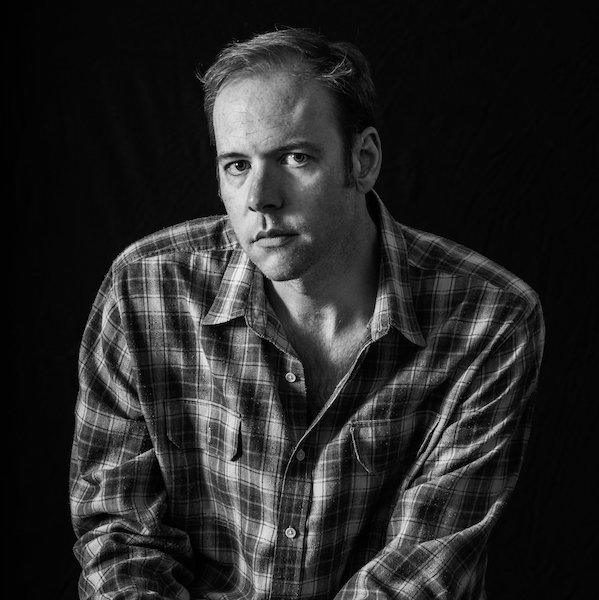I was 21 years old on Boylston Street with a copy of The Selected and Collected Poems of Bill Knott open in front of my face. I’d picked it up on interlibrary loan from Boston Public Library, crossed the street, opened it to start to read. One of my friends was trying to talk to me (Greg was his name, or Gary) but I couldn’t stop reading, all I could do was show him the poems—short ones, little magic things—that I was falling deep into love with (“shoulders / A-lit with birthdays of doves”). The excitement of a hundred more pages full of this devilry was almost more than I could stand.
Mine was a devouring, Lacanian love because at home, with a stack of his books and my Remington typewriter, I pushed toward Bill every way I could. Just like minerals fill up empty space in bones to ape them into fossils, I poured myself into every cell and crevasse of Bill’s work until my poems could pass for his poems. I got eerily good at impersonating him. I know because for about a year our poems appeared alongside one another in the new online journals starting up: Pith, Maverick Magazine, etc. In each issue that appeared there’d be a few of my poems and, alongside them, a long Bill Knott feature, maybe an interview. I sometimes ran into Bill in bookstores around this time, but I was too awed to say more than a few words. I couldn’t tell if he recognized me.
No one can live this way forever. I realized eventually the intensity of my hero worship was too unwieldy, though only about six or seven months after my friends did. I also knew I’d never find my own voice if I kept imitating Bill’s. I pushed off toward other mentors—no one I interacted with personally, just voices in books—but it was never the same. Poetry was too lonely without Bill in my head. Without his lyric I it turned out I didn’t have one. If he were famous enough I’d have put together a stage show like Hal Holbrook’s’ Mark Twain Tonight. Twenty years later I’d still be improvising Bill onstage: Bill Knott Alive.
Poetry survived in my heart, but it was a near thing. I married a poet, my wife Elisa (Bill sent us a note congratulating us on our wedding—he’d known who I was after all), and I figured out a way to keep writing the stuff, collaborating with my old friend Shafer Hall. You can’t wear your old obsessions any more than you can wear your old clothes. In the collaborations I write now, I don’t spend much time on the far shore of absurdism (“where bees brought honey to dying flowers”) or paint landscapes and throw them out the window (“bread weeps as you break it gently into years”). Instead, I imitate Shafer and he imitates me, one line at a time, each line at a time, the way I once learned to mimic Bill’s style. Bill’s poems live apart from me now, as they always have. They remain ideals.




